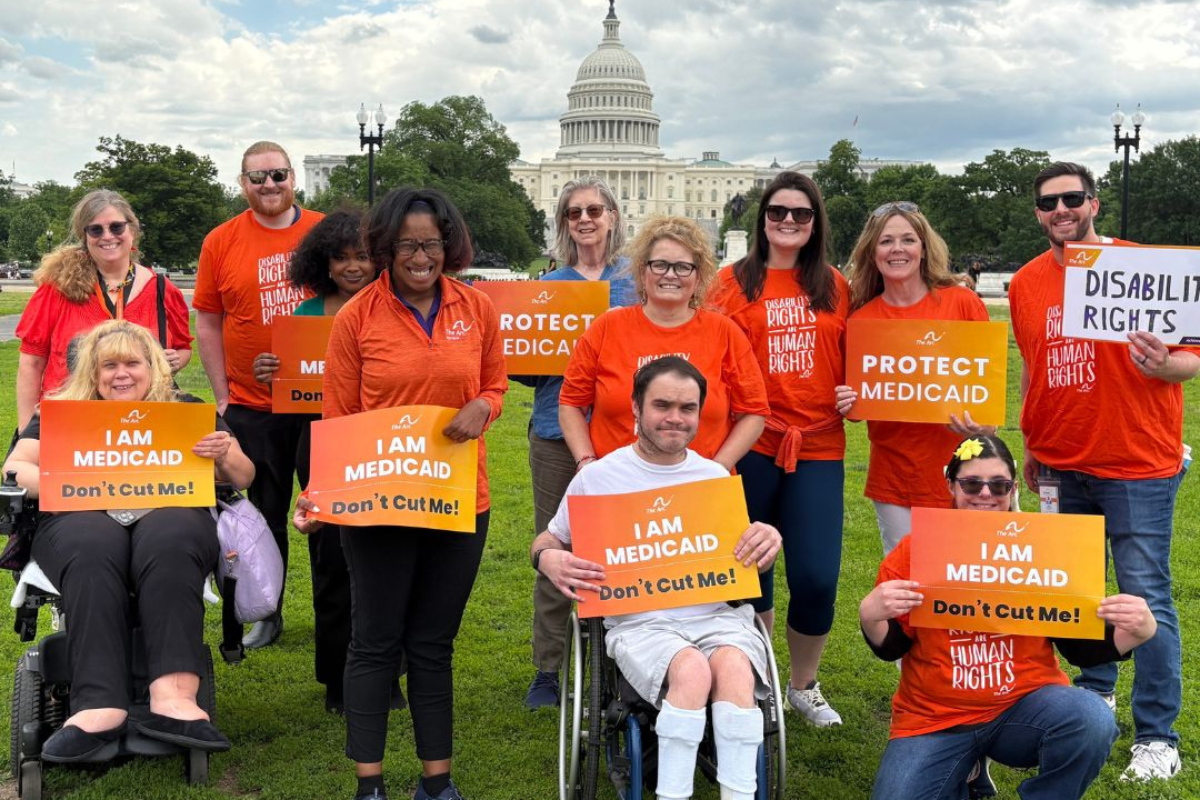Late night May 11 House Republicans released the text of a plan that would strip $880 billion from Medicaid, leaving at least 13.7 million people without health insurance coverage.
The proposed legislation is scheduled to be heard in the House Energy and Commerce committee May 13 afternoon. It is then expected to be taken up on the House floor early next week, in time to meet Speaker Mike Johnson’s timeline of passing a larger budget reconciliation bill before the Memorial Day weekend. The Senate would then take up its own version. A final reconciliation bill for President Donald Trump to sign into law is expected by the 1st week of July.
Republicans are aiming to cut $2 trillion from the federal budget this year in order to support $4.5 trillion in tax cuts over the next 9 years. Other safety net programs also face the chopping block.
Burden to States
More than 78 million people, including children, seniors, and the disabled, currently get healthcare coverage via Medicaid, known in California as MediCal. The proposed cuts would also deeply impact rural hospitals, substance abuse treatment programs, community health clinics, and long-term care programs. Lacking funding, many would have to shutter their doors.
Billions of dollars of healthcare costs would be shifted to states, who would then be forced to choose whether to narrow eligibility, cut out programs, or reassess payments to providers.
”After months of promises by President Donald Trump stating that he would not touch Medicaid or Medicare, we now have proof in writing that takes a chainsaw to Medicaid,” said Anthony Wright, executive director of Families USA, at a May 12 press briefing. “Millions will be forced off healthcare, getting sicker and dying younger,” he said, adding that the cuts would largely gut Medicaid.
Work Requirements
The proposed legislation adds work requirements for non-elderly adults, who would be forced to work at least 80 hours a month to be eligible for Medicaid coverage. Proof of employment would have to be verified every 6 months, placing additional bureaucratic and administrative costs on states, said Wright and other speakers at the briefing. If a recipient loses a job, they would also lose healthcare coverage.
A KFF study released in February notes that 64% of non-elderly adults receiving Medicaid do work full or part-time. Another 12% are working to take care of family members; 10% are disabled; and 7% are students. Around 8% are either retired or unable to work.
”It’s absurd to think that people are freeloading,” said Wright.
Vigil
Before the legislation dropped late May 11 night, hundreds of families from across the nation gathered in Washington DC, at the National Mall, and held a 24-hour vigil to protect Medicaid. The attendees read stories from thousands of Medicaid recipients who would be impacted by the cuts.
Nicole Jorwic, Chief of Advocacy and Campaigns at Caring Across Generations, spent 30 hours at the vigil. “My brother has autism, and he will have autism 6 months later,” she said, decrying the proviso of having to prove Medicaid eligibility twice a year.
Jorwic, along with Monique Stanton — President and CEO at the Michigan League for Public Policy — and Laura Waddell, Health Care Program Director at New Jersey Citizen Action, said the proof of work requirement would require states to spend millions of dollars in IT and administrative structure, dollars that could be better spent on direct services to Medicaid recipients.
About 2.6 million Michiganders are enrolled in Medicaid; the state receives $19 billion annually from federal funding. New Jersey has $1.8 million Medicaid recipients and receives about $14 billion in federal funding. The state has a “Cover All Kids” initiative which provides health insurance to 40,000 undocumented children. Waddell noted that the program is covered by state dollars.
Some Republicans Object
Several House Republicans have stated their objections to cutting funding for Medicaid. 12 Republican congressmen sent a letter to Speaker Johnson and Energy and Commerce committee Chairman Brett Guthrie, R-Kentucky, noting they will not support a final reconciliation bill that has any cuts to Medicaid. “Balancing the federal budget must not come at the expense of those who depend on these benefits for their health and economic security,” wrote the members of Congress in their April 14 letter.
”Cuts to Medicaid also threaten the viability of hospitals, nursing homes, and safety-net providers nationwide. Many hospitals — particularly in rural and underserved areas — rely heavily on Medicaid funding, with some receiving over half their revenue from the program alone. Providers in these areas are especially at risk of closure, with many unable to recover. When hospitals close, it affects all constituents, regardless of healthcare coverage,” wrote the congressmen.
One of the signatories was Rep. David Valadao, R-California, whose district in Kern County has the highest Medicaid enrollment of any Congressional district in the nation. Last month, community members converged in Bakersfield to urge Valadao to oppose the cuts.
Guthrie however, expressed his support for the cuts, saying the program was not meant to “subsidize capable adults who choose not to work.”
Sen. Josh Hawley, R-Missouri, also expressed his opposition to the cuts. In a May 12 op-ed for The New York Times, Hawley wrote that the proposed cuts are “morally wrong and politically suicidal.”
Almost 21% of Missouri residents depend on Medicaid or the Children’s Health Insurance Program.
“Congress should be doing everything possible to aid these working families, to make their health care better and more affordable. We should cap prescription drug costs, as I have recently proposed. We should give every family in America with children a hefty tax cut. What we should not do is eliminate their health care,” wrote Hawley.





